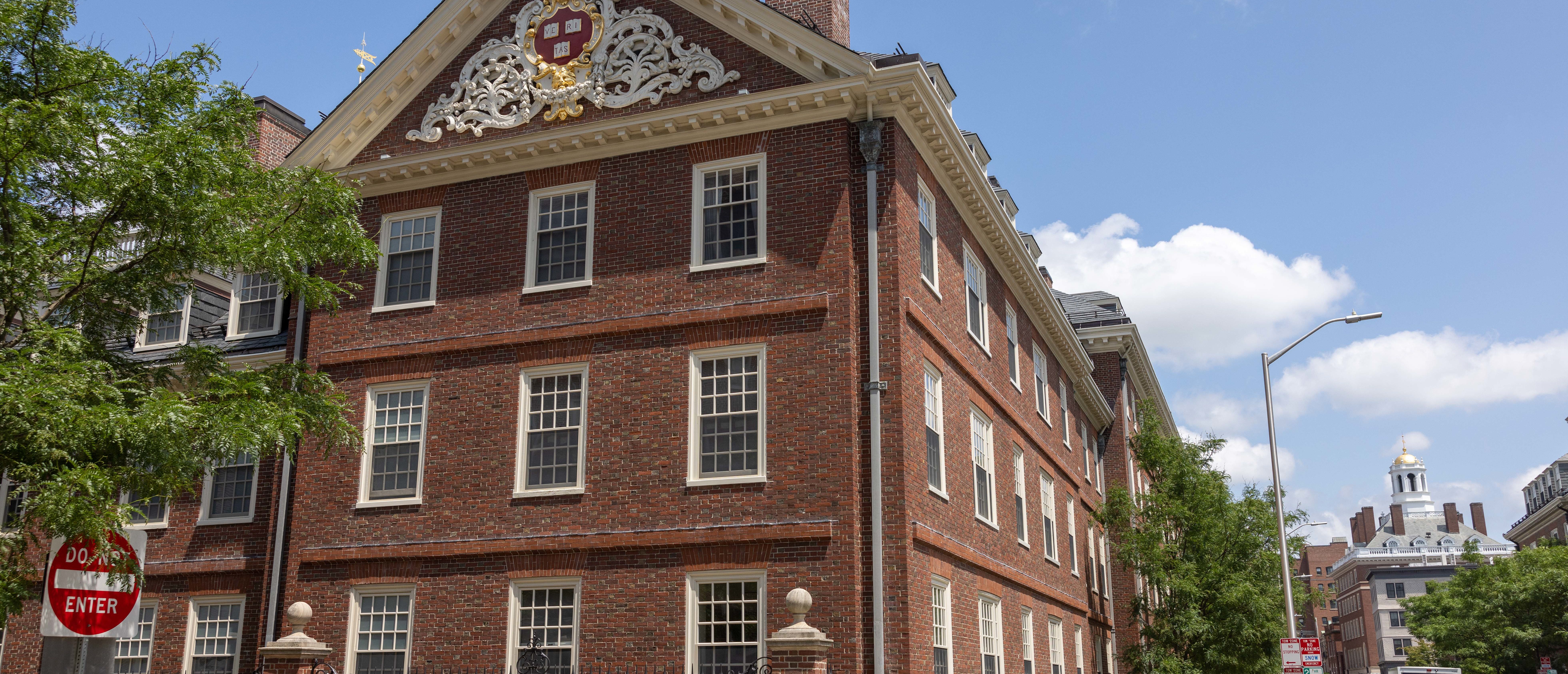Colleges and universities have started implementing questions about identity in admissions essays following the Supreme Court’s ban on race-based admissions, according to multiple admissions websites reviewed by the Daily Caller News Foundation.
Essays from more than two dozen schools are asking questions about identity and “lived experience” and asking students to discuss how their life was shaped by those things, according to The New York Times. Last year these essays asked questions such as what students like to read and what volunteering students have done, but after the Supreme Court’s ruling on affirmative action, that changed. (RELATED: More Black Americans Support SCOTUS’ Affirmative Action Ruling Than Oppose It: POLL)

CAMBRIDGE, MASSACHUSETTS – JUNE 29: A building stands on Harvard University’s campus on June 29, 2023 in Cambridge, Massachusetts. The U.S. Supreme Court ruled that race-conscious admission policies used by Harvard and the University of North Carolina violate the Constitution, bringing an end to affirmative action in higher education. (Photo by Scott Eisen/Getty Images)
“Tell us about an aspect of your identity (e.g. race, gender, sexuality, religion, community, etc.) or a life experience that has shaped you as an individual and how that influenced what you’d like to pursue in college at Hopkins,” the Johns Hopkins admissions website reads.
“The essay helps us understand who you are and what you want out of your Hopkins experience. In 300-500 words, you’ll be asked to answer the following question in a way that demonstrates the unique perspective you might add to our community,” an archived version of Johns Hopkins’ admissions website captured before the decision reads.
Questions such as “How will the life experiences that shape who you are today enable you to contribute?” are asked on Harvard’s essays, according to the NYT.
“If schools are using ‘identity,’ ‘lived experience,’ or even zip codes as proxies for race, that’s unlawful. The Court allowed schools to consider whether personal experiences, like overcoming discrimination, created personal virtue, but it made clear that schools can’t use such things to discriminate on the sly,” GianCarlo Canaparo, senior legal fellow at the Heritage Foundation, told the DCNF.
“Nothing prohibits universities from considering an applicant’s discussion of how race affected the applicant’s life, so long as that discussion is concretely tied to a quality of character or unique ability that the particular applicant can contribute to the university,” Sarah Lawrence College’s admissions website reads, quoting Supreme Court Chief Justice John Roberts from the decision in Students for Fair Admissions v. Harvard.
An archived version of the Sarah Lawrence College’s admissions website taken before the Supreme Court’s decision does not include this quote.
“If essays end up being used as a proxy for racial preferences, there could be additional litigation in the future to challenge those essay-based racial preferences. So I would say elite universities have to proceed very carefully in how they use essays for admission if they want to avoid future costly litigation,” Mark Perry, senior fellow at medical watchdog group Do No Harm, told the Daily Caller News Foundation.
Sarah Lawrence College, Harvard and Johns Hopkins did not immediately respond to the DCNF’s request for comment.
All content created by the Daily Caller News Foundation, an independent and nonpartisan newswire service, is available without charge to any legitimate news publisher that can provide a large audience. All republished articles must include our logo, our reporter’s byline and their DCNF affiliation. For any questions about our guidelines or partnering with us, please contact licensing@dailycallernewsfoundation.org.


